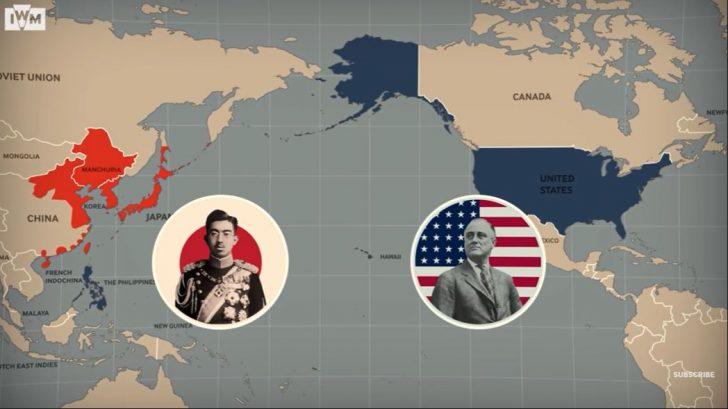On November 26, 1941, a Japanese attack fleet of six aircraft carriers, two battleships, and hundreds of aircraft departed from Japan. They planned a surprise attack on the US Pacific fleet anchored at Pearl Harbor, Hawaii.
But why did they want to attack in the first place, and why did a miscalculation lead to their untimely downfall?
Building an Empire
During the 1930s, Japan spent the last century modernizing its economy and military. Its ultimate goal was to build an empire as strong as Great Britain and the United States. Aside from that, they wanted to exploit natural resources and labor and build new trade routes, becoming one of the greatest powers in the world.
Lack of Natural Resources
However, Japan lacked the natural resources it needed to build that empire. It needed resources like oil, iron, and coal to make that vision a reality. 80% of that oil comes from the US alone. Running out of it will spell doom for its military campaigns and territorial ambitions. They needed more of these resources as their expansion to Asia and the Pacific also increased.
Restrictions
In response to Japanese aggression like the Rape of Nanking and the terror bombing of Chinese civilians that resulted in international condemnation, the US froze Japanese assets and placed restrictions on doing business with them.
Japan underwent a crisis and was unwilling to give up its imperial ambitions, and it felt that the only way left was to seize these natural resources by force. It believed that once it crippled the US Pacific Fleet, it could buy them enough time to move to the Pacific and Southeast Asia.
Attack the Pearl Harbor
Initially, the attack went well, sinking 18 US warships, destroying 188 aircraft, and severely damaging the base’s infrastructure. It also seized US territories like Guam, the Philippines, and Wake Island, and British territories like Malaya and Hong Kong followed a little later.
A Costly Oversight
However, Japan had miscalculated. They hoped for a short war, thinking the US didn’t want to fight a costly war with an enemy across the Pacific. Their plan was to negotiate for peace, eventually allowing Japan to keep some of its territories.
However, Japan’s ambitions for a short war evaporated quickly when President Roosevelt formally declared war against Japan, and America’s support for isolationism quickly melted away.
The attack on Pearl Harbor had been a huge gamble. While it was successful initially, it didn’t pay off in the long term. The Japanese had finally awoken the “Sleeping Giant,” as the subsequent years, the US geared up in its war efforts. Japan, by then, had very little hope for victory.



